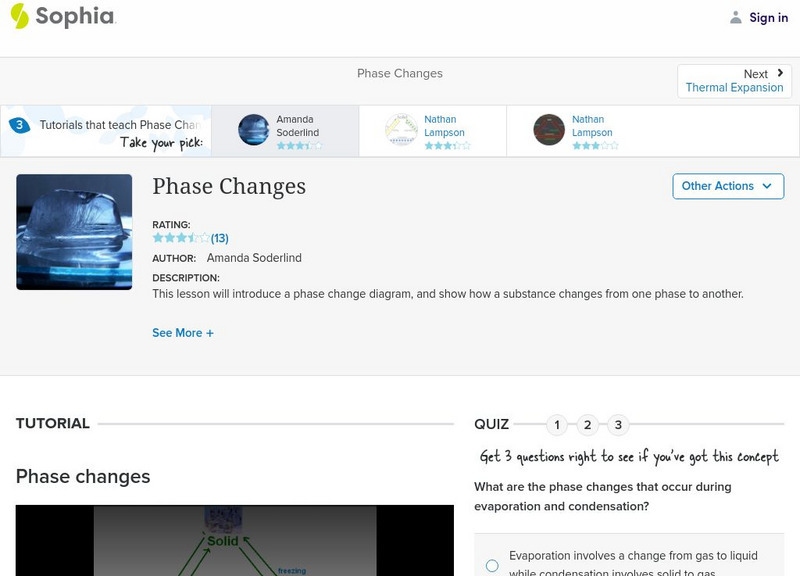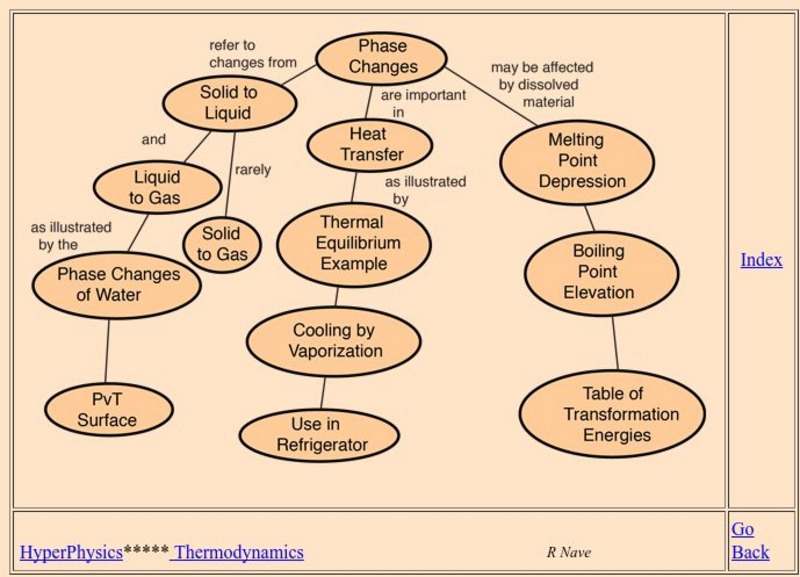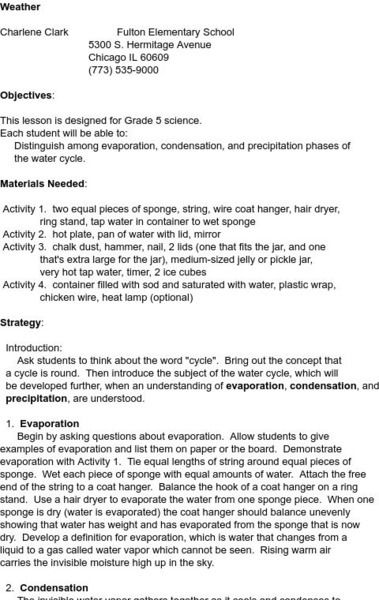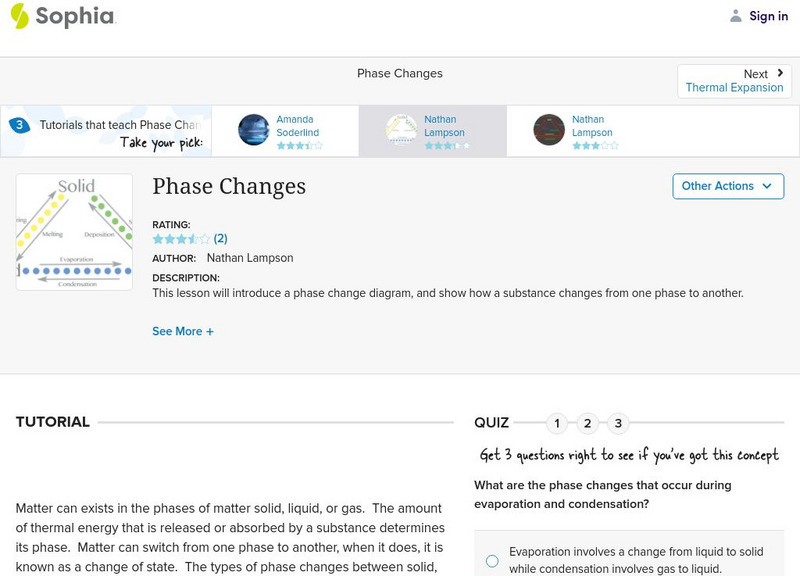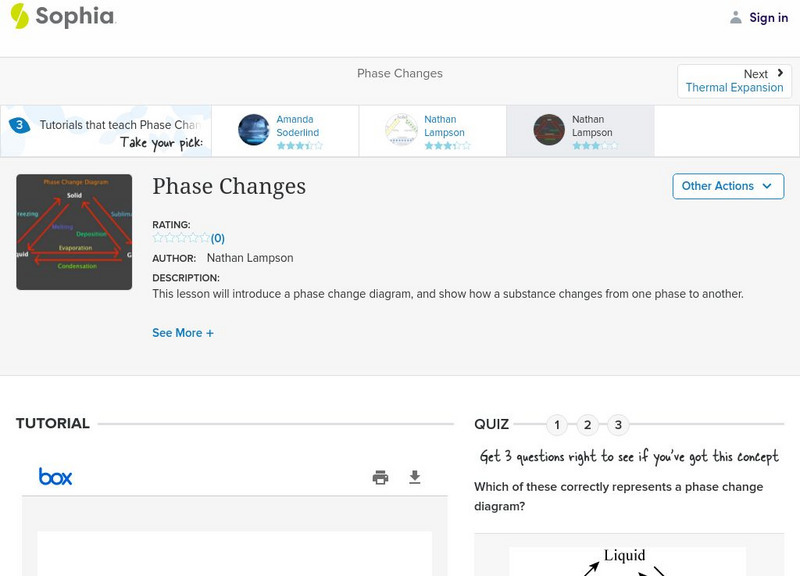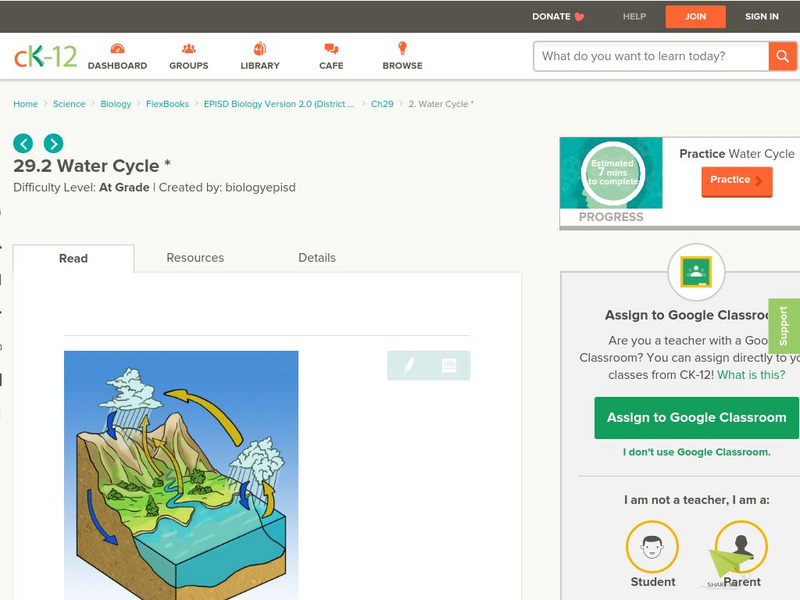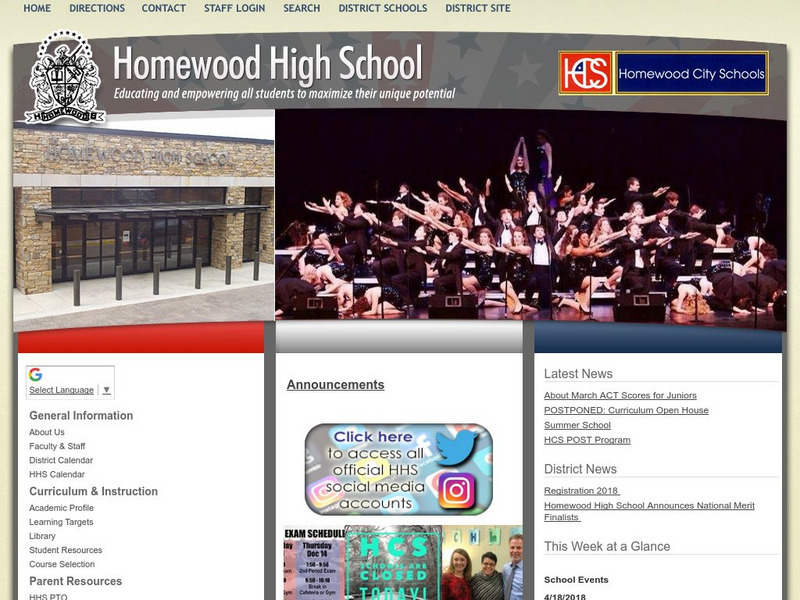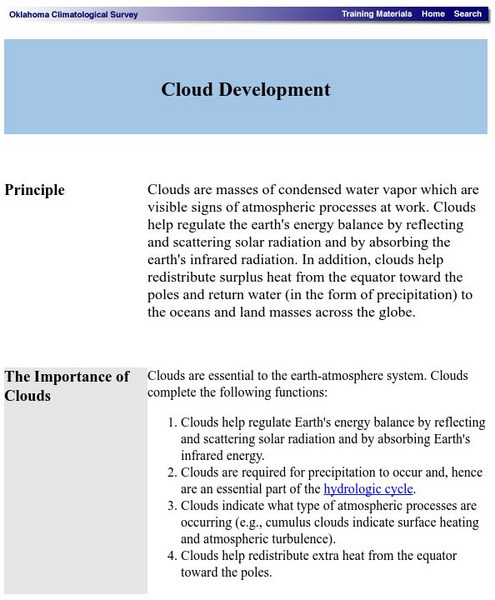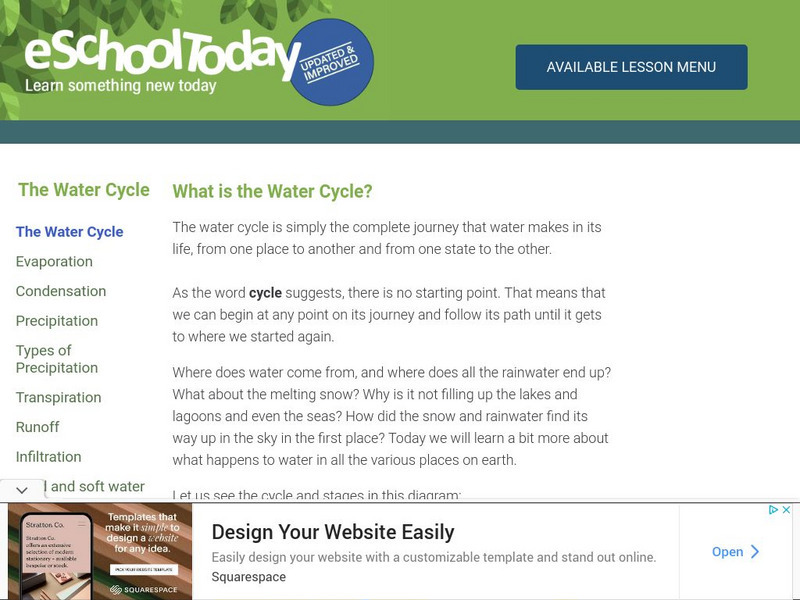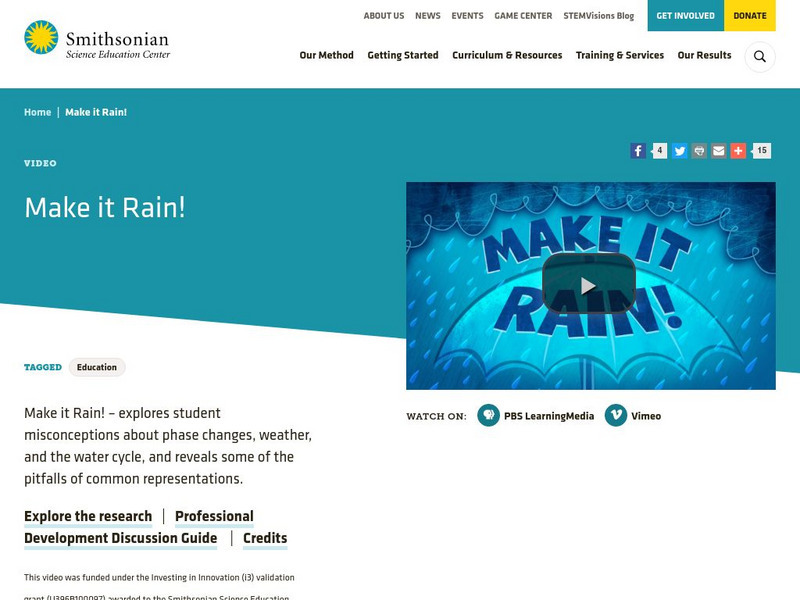Sophia Learning
Sophia: Phase Changes: Lesson 1
This lesson will introduce a phase change diagram, and show how a substance changes from one phase to another. It is 1 of 3 in the series titled "Phase Changes."
Concord Consortium
What Happens to the Energy of Water Molecules During Hurricanes?
How does energy charge when evaporation is reversed? and What powers a hurricane? are explored in this module.
University Corporation for Atmospheric Research
Ucar: The Water Cycle
This site provides a comprehensive introduction to the water cycle. Students construct a model to simulate parts of the water cycle. Includes background information, links to standards, lesson plans, and assessment ideas.
Other
Warmair.com: Refrigeration Cycle
The expansion-compression-condensation cycle of a refrigerator is discussed and explained. Understandable language but no graphics.
Georgia State University
Georgia State University: Hyper Physics: Phase Change Concepts
An indexing page for the HyperPhysics site. This page includes links to a variety of pages at the site which contain information related to phase changes. Each individual page consists of informative graphics and clear explanations.
Scholastic
Scholastic: Study Jams! Science: Weather and Climate: Water Cycle
Water water everywhere. Check out this video clip and test understanding about the cycle of water from the earth to the atmosphere.
BBC
Bb Ci Schools: Revisewise Science: Solids, Liquids, Gases
This site contains an interactive activity in which students can learn about the three states of matter. There is also a factsheet that lists numerous properties of liquids, solids, and gases. The factsheet also uses water as an example...
Math Science Nucleus
Math/science Nucleus: Giving Water a Second Chance
This animation discusses water and the water cycle in a storybook format. Condensation, evaporation, and precipitation are all covered.
Science and Mathematics Initiative for Learning Enhancement (SMILE)
Smile: Weather
This lesson plan focuses on teaching students to distinguish among the evaporation, condensation,and precipitation phases of the water cycle.
Other
Warm Air: Central Air Conditioning
The operation of conventional air conditioners are described. Their parts and the refrigerant/heat exchange cycle is discussed. The use of alternative geothermal systems are explained.
Science Struck
Science Struck: Water Cycle: An Easy Explanation for Kids
Provides a simple explanation of the water cycle by describing four main stages - evaporation, condensation, precipitation, and collection. Includes three project ideas and some interesting facts.
Science Struck
Science Struck: Water Cycle Diagram
Describes the four main stages of the water cycle - evaporation, condensation, precipitation, and collection.
Sophia Learning
Sophia: Phase Changes: Lesson 3
This lesson will introduce a phase change diagram, and show how a substance changes from one phase to another. It is 3 of 3 in the series titled "Phase Changes."
Sophia Learning
Sophia: Phase Changes: Lesson 2
This lesson will introduce a phase change diagram, and show how a substance changes from one phase to another. It is 2 of 3 in the series titled "Phase Changes."
TeachEngineering
Teach Engineering: Ocean Water Desalination
Students learn about the techniques engineers have developed for changing ocean water into drinking water, including thermal and membrane desalination. They begin by reviewing the components of the natural water cycle. They see how...
CK-12 Foundation
Ck 12: Episd: Water Cycle
[Free Registration/Login may be required to access all resource tools.] An introduction to the biogeochemical cycle, the water cycle. Recognize evaporation, sublimation, and condensation. Identify groundwater and runoff water supplies.
Other
Homewood City Schools: Classification of Matter
This Homewood City Schools site has an outline form and contains lots of information about the classification and composition of matter. Some of the topics covered are matter and temperature, changes in state, composition of matter, and...
Mocomi & Anibrain Digital Technologies
Mocomi: Separation of Substances
Learn about ten different methods of separation of substances.
Oklahoma Mesonet
Oklahoma Climatological Survey: Cloud Development
This site explores the importance of clouds and how clouds are formed. Content details common atmospheric cooling mechanisms and atmospheric stability.
Science Education Resource Center at Carleton College
Serc: Investigating Three Main Ingredients Needed to Create a Cloud in a Bottle
In the science lab, students will create and observe the conditions necessary to make a cloud in a bottle.
eSchool Today
E School Today: Your Revision Notes on the Water Cycle
Learn about the different stages of the Earth's water cycle, and about processes involving water, including runoff, infiltration, and the differences between hard and soft water.
PBS
Pbs Learning Media: The Sun and the Water Cycle
Learn about the water cycle through the adventures of two sisters. They will explain how the sun powers the water cycle and describe the different states of water. A glossary and labeled illustrations accompany the video. For the...
TeachEngineering
Teach Engineering: Natural and Urban "Stormwater" Water Cycle Models
Students apply their understanding of the natural water cycle and the urban stormwater water cycle, as well as the processes involved in both cycles to hypothesize how the flow of water is affected by altering precipitation.
Smithsonian Institution
Smithsonian Science Education Center: Make It Rain
How do you show students that the water cycle is more than just the traditional model of the ocean, clouds, and mountains and actually a part of their daily lives? This video will show multiple models of different part of the water cycle...


